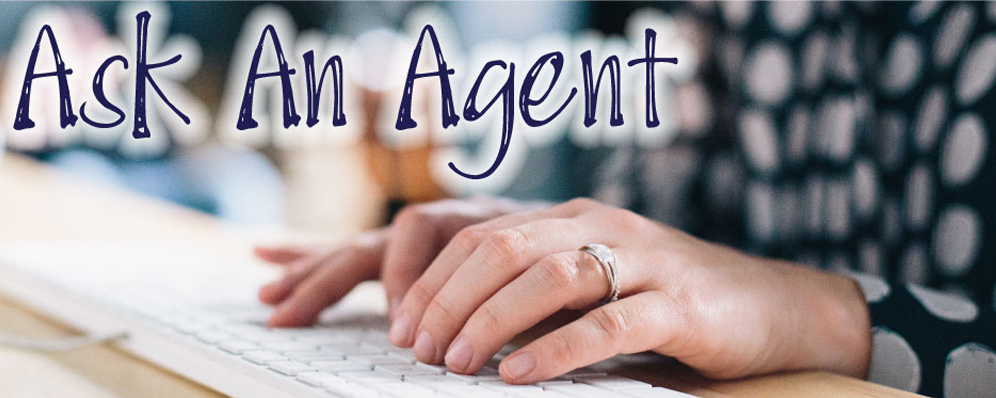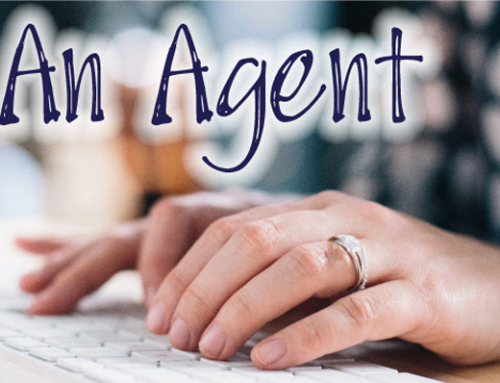I’ve recently worked through a post-holiday backlog of submissions, and stumbled on some recurring themes and – naturally – some recurring pet peeves. Agents are as diverse in their taste for query letters as they are in their tastes for reading material, so please know my advice comes from personal preference. But I hope these rules will have some universal application for how, when, and why you should contact to an agent. A little work can go a long way to ensure your submission actually gets a thorough read.
1. First, the obvious stuff: Follow the submission guidelines. Most agency websites clearly spell out what material an agent would like to see, and where and how to send it. When you ignore the guidelines, it signals to an agent that you either can’t read (bad sign!) or can’t be bothered to follow the rules (bad impression!).
2. Be specific about whom you approach and how you address them. I can see the logic in a mass submission – throw your query out there and see what sticks? But a “Dear Agent” email feels like spam that you might have sent to 100+ people, and I’d rather know you’ve put some thought into where you have sent your work. Why are you reaching out to me in particular? Did you love that novel I represented, and then find my name on the acknowledgements page? Tell me so. Did you read somewhere that I’m into Eastern Europe, before deciding to send me your book set in Bosnia? Awesome. It might feel tedious, but a little research up front goes a long way. In addition to checking out the agents for your favorite books, you can search the database of the Association for Authors’ Representatives to see who represents work in your genre: http://aaronline.org/
3. Have a good attitude. Related to rule-following, please keep in mind that your query letter is potentially the start of a long and fruitful relationship. Remember that the email address at the top leads to a person, not a little man on top of a tower, trying to keep you out of the publishing industry. A wise woman I know once pointed out that if agents and editors are gatekeepers, you must remember that gates are meant to be opened, too. I don’t enjoy rejecting people; on the contrary I’m reading your work just as hopeful as you are that I’ll find the perfect match for me. So don’t start out abusive (it happens), and please be patient: I must first prioritize reading my existing authors’ work, and then I like to read each submission personally. This takes time. On the flip side, if there’s a reason to rush, let me know. Do you have an offer from another agent? Please alert every other agent whom you’ve sent it to, and either withdraw it from submission, or give us a week or so to read and respond ourselves. It’s just good manners.
4. Don’t send the book too soon. The point at which you submit a book to agents should be the point at which you’ve gotten it to the strongest possible place you can on your own – and no sooner. I always advise authors to send their manuscripts to their ten meanest friends before submitting it to me, and I’m really not joking. Wait until you’re ready to submit, and then send me the best version. Don’t immediately follow it up with a revision before I’ve even had a chance to open your email. However, if you’ve accidentally sent the wrong attachment, or no attachment (I’m human, I get it), or if while waiting for me to read, you get some crucial feedback or strike upon an idea that has you taking the book in another direction – don’t be afraid to get in touch.
5. Don’t add me on Facebook. This, again, is a personal preference, and I understand the social media waters are murky. On Twitter, my account is public on purpose. On Facebook, it is not, and I prefer to keep photos of my vacations, nephews, etc., limited to people I know.
6. Understand what your book is, and what it isn’t. The best writers are usually the best readers, too, and it helps me if you give me some guidance for how to read your work. Who are your teachers or influences? A novel about a failing marriage will be so different when written in the vein of Chuck Palahniuk or Richard Yates or Patricia Highsmith. (Yes, there’s a way to compare your writing to Ian McEwan’s without sounding like a jerk.)
7. Be aware of the market: Is it a hybrid like Max Porter’s Grief is the Thing with Feathers and innovative like Marisha Pessl’s Night Film? Or is it hybrid and innovative as in “this has no possible shelf at a Barnes & Noble”? But don’t write for the market: if you’re trying to catch a trend, it’s generally safe to assume that trend will be over by the time your book is written, agented, sold, edited, and published. And please don’t try to trick me, as I know the difference between a “magical realism novel” and a fantasy novel, even if you do not.
8. Keep it short. I personally would prefer a short synopsis – just a paragraph or two does the trick – as I’d rather just get straight into reading the book as soon as possible. Please also keep your bio quick and relevant. If you got an MFA, and have been published in numerous literary journals, do tell me! But don’t worry if you haven’t; I’ll also be impressed if you’ve written your first novel while also working a full-time job.
9. Keep it honest. Don’t let my request for brevity convince you to hide any pertinent information from your publication history: if you’ve self-published earlier work, if you were represented before, and/or if your book has already been declined by certain editors, I need to know that right away.
10. If you design your own book jacket, fun for you, but I don’t need to see it. Unless you’re sending me a graphic novel or other illustrated project, it will be the writing that sways me, not the cover image or book trailer you’ve put together.
Oh, and the writing? Once we’ve established that you’re a respectful person writing in a genre I represent, I’ll start reading, and it’s the content of these pages that matter to me more than any of my previous nine points. For simplicity’s sake, I’ll just share two things I’m wary of, which are usually apparent in the first few pages: 1) unrealistic and too-much dialogue 2) lazy descriptions: an adverb for every verb; overused metaphors; flat or borderline prejudiced markers: “exotic” Asian women, say, or “chocolate” brown skin. But my fondness for a project is so subjective, and there are many factors that draw me into a book – but that’s a list for another day.
Looking for guidance in readying your manuscript for submission to agents or preparing stellar query materials? Click here to learn more about how The Editorial Department can help.



